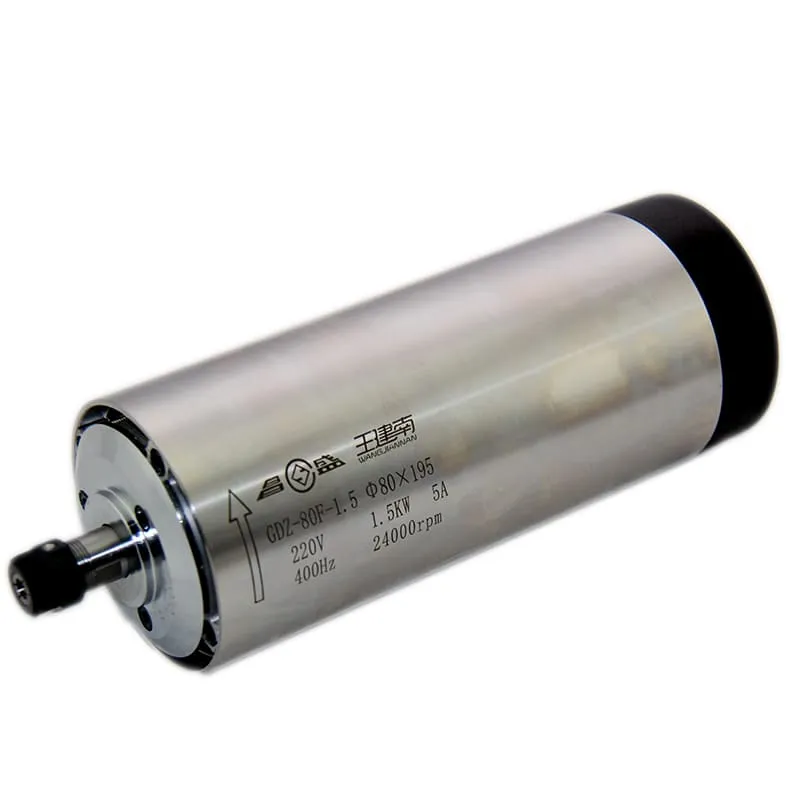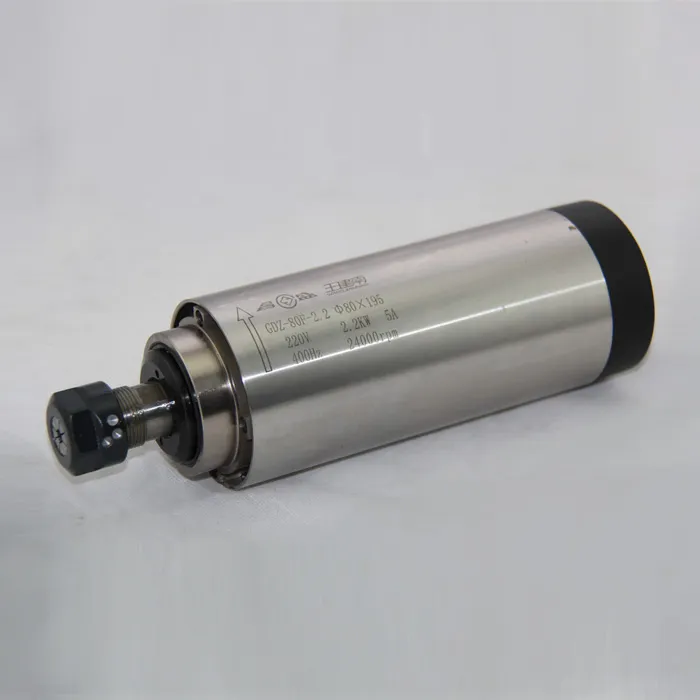How Much Do CNC Operators Get Paid?
How much do CNC operators get paid? This is a common question among those interested in joining the world of computer numerical control (CNC) machining. CNC operators play a critical role in the manufacturing process, working with sophisticated machinery to create parts with precision and consistency. Their responsibilities range from setting up and operating CNC machines to maintaining equipment and ensuring product quality. In this article, we’ll explore the factors that determine a CNC operator’s salary, typical pay scales, and the skills needed to boost earning potential.
Understanding the Role of a CNC Operator
1. What Does a CNC Operator Do?
A CNC operator is responsible for handling CNC machines, which are programmed to perform tasks like cutting, milling, and drilling various materials such as metal, plastic, and wood. CNC operators work across multiple industries, including aerospace, automotive, and construction, contributing to the manufacture of everything from airplane components to custom furniture.
The main responsibilities of a CNC machine operator include:
- Loading materials onto the machine.
- Operating CNC routers, lathes, or mills to produce parts based on specifications.
- Checking measurements to ensure accuracy.
- Monitoring machine performance and making adjustments as needed.
Being a CNC operator requires attention to detail, basic math skills, and an understanding of the principles of machine operation. Operators must be comfortable working with high-precision equipment to ensure parts are machined correctly.
Check out our CNC Spindle Motors for optimal CNC machine performance and improve productivity in your machining operations.
2. The Different Types of CNC Operators
CNC operators can work with different types of CNC machines, including:
- CNC Mill Operator: Responsible for working with CNC milling machines to shape and drill materials, often metals.
- CNC Lathe Operator: Focuses on operating CNC lathes, which are used to create cylindrical parts by rotating the material against a cutting tool.
- CNC Router Operator: Typically works with wood, plastics, and composites, making it popular in industries like woodworking and cabinetry.
The type of machine an operator works on can impact their salary, as certain machines—like CNC lathes used for aerospace parts—may require a higher level of skill and pay accordingly.

Discover the best CNC spindle for your machine for enhanced precision in milling and lathing projects.
Factors Influencing CNC Operator Salaries
1. Experience and Skill Level
The salary of a CNC operator is influenced significantly by experience. Newcomers in the field may start at entry-level positions, where they operate machines under supervision and learn to interpret CNC programs. As operators gain experience, they may take on more responsibilities, such as setting up machines, troubleshooting errors, and programming CNC tools.
- Entry-Level Operators: Typically earn lower wages as they are still learning the ropes. Salaries often start around $30,000 to $35,000 annually.
- Experienced CNC Operators: With several years of experience, CNC operators can earn significantly more. Experienced operators who are skilled in working with various machines and programming earn between $45,000 to $60,000 annually.
- CNC Programmers: Those who advance from operating machines to programming them can earn even more. CNC programmers are responsible for writing the G-code that CNC machines use, and salaries can range from $60,000 to $80,000 or higher.
Explore our 2.2KW ER16 Air-Cooled Spindle to improve the efficiency of your CNC machining projects.
2. Industry and Location
The industry in which a CNC operator works also plays a big role in determining pay. CNC operators employed in industries like aerospace, medical device manufacturing, and automotive tend to earn higher salaries compared to those working in smaller machine shops or woodworking businesses.
- Aerospace: Due to the high precision and stringent quality requirements, CNC operators working in aerospace can expect higher pay rates.
- Medical Devices: Similar to aerospace, the production of medical devices requires high-precision machining, leading to higher salaries for skilled CNC operators.
The location also matters. For example, CNC operators in states like California, Texas, and Massachusetts often earn more than those in states with a lower cost of living, due to both the cost of living differences and industry presence.

Use our 3.5KW ER25 Air-Cooled Spindle for increased productivity and precision in demanding machining environments.
Average Salaries of CNC Operators
1. National Average Salary
On average, CNC operators in the United States earn between $40,000 to $50,000 per year. This number varies depending on experience, the type of machine used, and the industry. Entry-level CNC operators typically earn around $16 to $20 per hour, while more experienced operators can make $25 to $30 per hour.
| Experience Level | Average Annual Salary | Hourly Rate |
|---|---|---|
| Entry-Level | $30,000 – $35,000 | $16 – $20 |
| Mid-Level | $40,000 – $50,000 | $20 – $25 |
| Senior-Level | $45,000 – $60,000+ | $25 – $30+ |
2. Salary by Machine Type
The type of machine a CNC operator works with can influence their salary:
- CNC Lathe Operator: Generally, lathe operators earn $40,000 to $55,000 annually. CNC lathes often require a high degree of precision, particularly for automotive and aerospace parts.
- CNC Mill Operator: CNC mill operators earn around $38,000 to $52,000 annually, depending on their skill in working with metals and other complex materials.
- CNC Router Operator: These operators may earn slightly less, with annual salaries ranging from $35,000 to $48,000, as routers are often used for wood and less complex materials.
Find our selection of high-quality spindles for CNC machines to enhance machining accuracy and reliability.
How to Boost Your Salary as a CNC Operator
1. Advance Your Skills
One of the best ways to boost your salary as a CNC operator is by expanding your skillset. Learning additional skills such as CNC programming, machine maintenance, or CAM software can make you more valuable to employers.
- CNC Programming: Operators who can program CNC machines are in higher demand and can command a higher salary. Learning to write G-code or use CAM software like Fusion 360 can set you apart from other operators.
- Multi-Machine Operation: Operators skilled in running multiple types of CNC machines are more valuable to employers and may be paid higher wages.
2. Certifications and Training
Gaining industry-recognized certifications can also help boost your salary. Organizations like NIMS (National Institute for Metalworking Skills) offer certifications in CNC operation and programming.
- NIMS Certification: Being certified by NIMS shows employers that you have a verified set of skills in CNC machining, which could lead to a higher starting salary.
- Trade Schools and Apprenticeships: Attending a trade school or completing an apprenticeship can provide the hands-on experience necessary to gain advanced positions more quickly.

Check out our 2.2KW ER20 Air-Cooled Spindle for efficient production, helping operators to improve productivity.
The Benefits of Being a CNC Operator
1. Job Stability and Demand
CNC operators are in high demand across multiple industries, from automotive to furniture making. This demand offers job stability for operators with the right skills. As technology continues to advance, the demand for CNC operators is expected to grow, ensuring consistent job opportunities.
- Manufacturing Dependence: CNC technology is the backbone of modern manufacturing. The reliance on CNC for precision parts means that skilled CNC operators will always be needed.
- Global Demand: The demand for CNC operators is not just local; it extends globally, providing opportunities for those willing to travel or relocate.
2. Opportunities for Career Growth
Working as a CNC operator can be a great starting point for a career in manufacturing. With experience, many CNC operators move on to become CNC programmers, machinists, or even manufacturing engineers.
- Career Pathway: Starting as a CNC operator gives you a solid foundation in machine operation and production processes, which are crucial skills if you plan to advance to a managerial role in manufacturing.
- Technical Expertise: The technical expertise gained from operating CNC machines makes it easier to move into fields like robotics, automation, or precision engineering.
Conclusion: How Much Do CNC Operators Get Paid?
The question, how much do CNC operators get paid, is influenced by multiple factors including experience, machine type, industry, and location. On average, CNC operators in the U.S. earn between $40,000 to $50,000 annually, with opportunities for increased pay through skills enhancement and certifications. CNC operation is not only a stable job but also provides a pathway for career advancement in the thriving world of manufacturing.
If you’re looking to improve productivity and precision in your CNC operations, consider our wide range of CNC spindle motors. These high-quality spindles are designed to maximize efficiency and performance, ensuring your machining jobs meet exacting standards.
FAQs
1. What is the average salary for a CNC operator?
The average salary for a CNC operator in the United States ranges from $40,000 to $50,000 annually, depending on experience, industry, and location.
2. Does experience affect the salary of a CNC operator?
Yes, experience significantly affects a CNC operator’s salary. Entry-level operators earn less, while those with more experience and additional skills can earn over $60,000 per year.
3. What skills can increase a CNC operator’s salary?
Skills such as CNC programming, the ability to operate multiple machine types, and certifications like NIMS can significantly increase a CNC operator’s earning potential.
4. What industries pay the highest for CNC operators?
Industries like aerospace, medical device manufacturing, and automotive tend to offer higher salaries to CNC operators due to the precision and complexity required.
5. Is there room for career growth as a CNC operator?
Absolutely. Many CNC operators advance to roles such as CNC programmer, machinist, or even manufacturing engineer with experience and further training.

